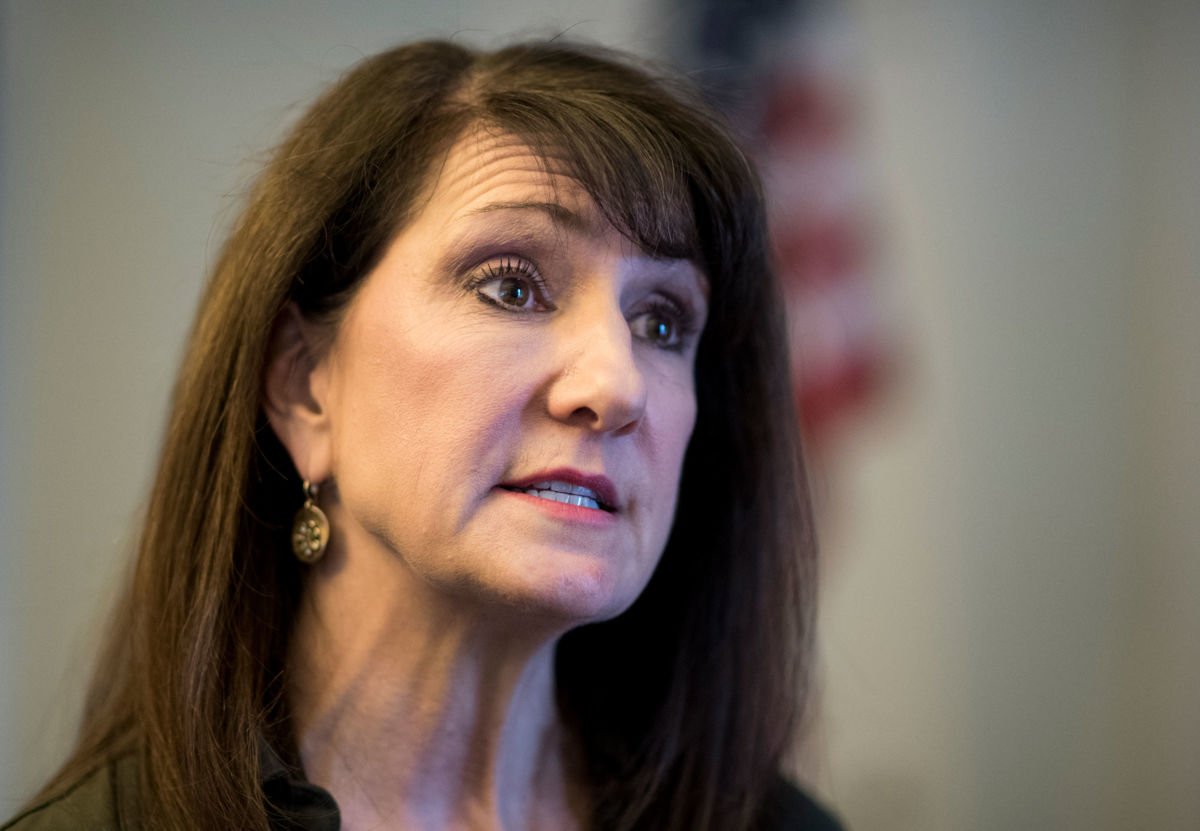After a midterm cycle featuring a number of high-profile upsets, a few House Democrats are already facing primary challengers in advance of 2020. But candidates looking to repeat the success of Reps. Alexandria Ocasio-Cortez (D-N.Y.) or Ayanna Pressley (D-Mass.) have a tough path forward.
Incumbents nearly always have an advantage when it comes to fundraising, and a new policy from the Democratic Congressional Campaign Committee makes it more difficult for primary contenders to find consultants and contractors. Still, several challengers think they have what it takes to pull off upsets of their own.
Justice Democrats, the group that propelled Ocasio-Cortez to power, is backing two candidates so far: middle school principal Jamaal Bowman, who declared his challenge to Rep. Eliot Engel (D-N.Y.) on Tuesday, and 26-year-old lawyer Jessica Cisneros, who announced last week that she will challenge longtime Rep. Henry Cuellar (D-Texas).
Justice Democrats have been eyeing Cuellar, considered a relatively conservative Democrat, as a target for a primary race since at least January. The congressman from Laredo received a grade of 93 percent from the NRA last year and voted with President Donald Trump nearly 70 percent of the time during the 115th Congress, according to FiveThirtyEight — though this year, he hasn’t sided with the president on a single bill.
Cisneros is campaigning on the Green New Deal, Medicare for All and a $15 minimum wage. She has said she will not take corporate PAC money, in contrast to Cuellar, who took in more than 62 percentof his contributions from business PACs in 2018.
Cuellar starts the primary race with a clear fundraising advantage. Cisneros announced on Twitter that she received $100,000 in donations from more than 4,000 donors within 48 hours of her campaign’s launch. But Cuellar raised $410,000 in the first quarter of 2019, and has $2.8 million on hand.
Engel, who easily fended off three primary challengers in 2018, had $180,000 in the bank at the end of the first quarter. His district includes portions of the Bronx and Westchester County and borders the district Ocasio-Cortez won in 2018.
Meanwhile, a familiar primary is taking shape in Illinois’ 3rd Congressional District, as Marie Newman takes on Rep. Dan Lipinski (D-Ill.), one of only a few House Democrats who opposes abortion rights.
Newman, then a relative unknown, challenged Lipinski in the 2018 Democratic primary and lost by 2 points. This time, she has been endorsed by three presidential candidates and out-raised Lipinski in the first quarter, hauling in $210,000 to the incumbent’s $128,000. Lipinski still has the advantage when it comes to cash on hand, with $425,000 as of the end of the first quarter.
Both Lipinski and Cuellar are conservative Democrats representing relatively liberal districts. During the 2018 general election, Lipinski garnered 73 percent of the vote over a Holocaust denier. Since the district’s current boundaries were established in the early 1990s, it has never been represented by a Republican. Cuellar, who has not faced a primary challenger since 2006, won his race with nearly 85 percent of the vote in 2018. Hillary Clinton carried his district by nearly 20 points in 2016.
Historically, competitive primary challengers have emerged from across the political spectrum, and have not been limited to progressive groups such as the Justice Democrats. Current presidential candidates Beto O’Rourke (D-Texas), Seth Moulton (D-Mass.) and Eric Swalwell (D-Calif.) all entered Congress after successful primary challenges. So did Engel, who knocked off a longtime incumbent in 1988, and Cuellar, who was elected the House after beating the more liberal incumbent Ciro Rodriguez in the 2004 primary by a margin of just 58 votes.
This election cycle, however, challengers face an additional hurdle. The DCCC announced in March that it will not contract with pollsters, consultants or other vendors who work on behalf of primary challengers, on the basis that protecting incumbents was the party’s best path toward maintaining a majority in the House of Representatives.
The DCCC spent nearly $300 million supporting Democratic House candidates during the 2018 midterms. Among the committee’s top contributors were the official committees of Cuellar and former Rep. Joe Crowley, who was ousted by Ocasio-Cortez.
The vendor policy received pushback from liberal corners of the party, with critics noting that Democrat incumbents are more likely to be male and white compared to their challengers. On Twitter, Ocasio-Cortez called it “extremely divisive (and) harmful.” Newman felt an immediate impact, telling Politico in April that four consultants left her campaign due to the policy.
Even as new primary challengers have emerged the months since, the DCCC has indicated that the policy is likely to stay. In April, Justice Democrats launched a countersite called DCCC blacklist, designed to identify vendors who were open to working with primary challengers. The site has nearly 30 organizations listed.
Justice Democrats executive director Alexandra Rojas told the Washington Post in May that she was encouraged by candidates’ efforts in spite of the policy.
“The DCCC implemented their policies to prevent progressive primary challengers like Alexandria Ocasio-Cortez and Ayanna Pressley from going ‘mainstream’ in 2020, but it looks like the exact opposite is happening,” Rojas said.
Join us in defending the truth before it’s too late
The future of independent journalism is uncertain, and the consequences of losing it are too grave to ignore. To ensure Truthout remains safe, strong, and free, we need to raise $27,000 in the next 24 hours. Every dollar raised goes directly toward the costs of producing news you can trust.
Please give what you can — because by supporting us with a tax-deductible donation, you’re not just preserving a source of news, you’re helping to safeguard what’s left of our democracy.
